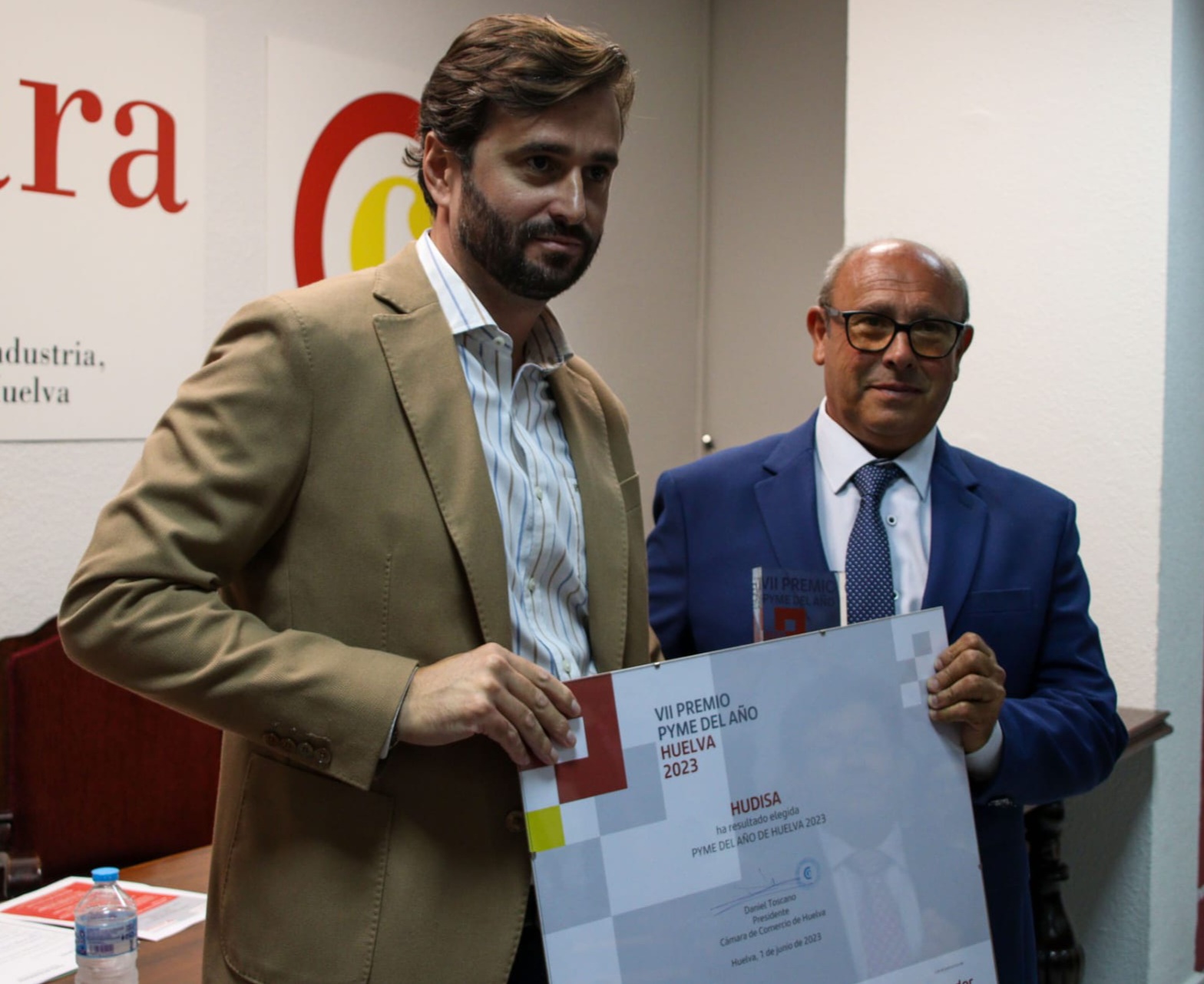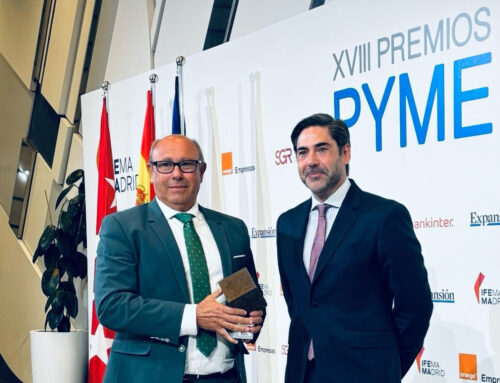Antonio Tirado collects the award and states that the company’s success “is the result of the farmers’ excellent cooperation.”
Lepe, 2 June 2023. Hudisa has been elected as the SME in Huelva 2023, an award organised by the Spanish Chamber of Commerce and the Santander Bank, and promoted by the Huelva Chamber of Commerce. Antonio Tirado, HUDISA President, was in charge of collecting this award, which seeks to draw attention to the role of SMEs in the creation of well-being for society as a whole.
As highlighted by the organisation, the jury has rated aspects related to the creation of employment and its quality, implementation of training initiatives for workers, the internationalisation of the company, the introduction of innovations and digitalisation, and the application of corporate responsibility policies, both in social and business areas. It states that the aim is to “underline the role of SMEs in generating social well-being as a whole,” as well as “making the daily businessmen and women’s efforts visible, as well as their contribution to economic development and creation of employment.”
Hudisa has more than 1,000 farmers who work in Lepe and its surrounding area. There are 90 factory workers, 28.57% of whom are women, which is a very significant figure in a province with such a high rate of unemployed women.
Tirado emphasised, in his own words, how proud he was to receive an award “on behalf of more than a thousand men and women who look after and nurture the fruit that we process every day in our factory. They give life to Hudisa and are the future of our countryside, and our industry.”
He said “defending our farmers is part of our DNA, and one of the pillars of our company is their union. The cooperatives that are part of Hudisa are based on the work of families who, for generations, have worked on the land and who are perfectly aware of the conditions required to obtain the best fruit. From the very beginning, our work has been and still is based on their experience and rigour.”
Hudisa’s activity is focused on sustainable agricultural practices, so one of its priorities is the protection of farmers and the countryside. The company has been including environmental, social and good governance criteria in the development of its industrial activity for years, seeking a balance in the different aspects of the organisation, in terms of human, material, financial as well as natural resources.
Hudisa is committed to reducing the impact of its activity on nature and the environment. Consequently, a photovoltaic self-consumption plant has been installed, which will generate energy and reduce CO₂ emissions: 93.25 Tn/year. Hudisa have also installed economisers to boost the carbon footprint reduction strategy and thereby further reduce the environmental impact of the activity. Various measures have also been taken to reduce water consumption by over 50%. This is the company’s commitment to the aims of sustainable development and the reduction of greenhouse gas emissions.
In terms of innovation and the need to be one step ahead of customer expectations, Hudisa also collaborates with technology centres to seek improvement in product conservation and the creation of new products.
As well as investing in updating facilities and machinery, the company also invests in its human resources, offering continuous training and fostering internal promotion.
And all this is under the strict standards of URSA, the certification that evaluates good practices in labour, health and safety standards.
Hudisa
Hudisa started its activity in 2002 and is located in the heart of the province of Huelva. It processes and sells strawberry, raspberry, blackberry and blueberry purees, concentrates and frozen fruit from the province of Huelva, the largest red fruit producing area in Europe. It works on three different product lines: conventional, Baby Food and Organic. Avocado and pomegranate have also been included.
Today Hudisa is the leading southern European company in terms of the quantity of processed red fruit, with a production capacity of more than 20 million kilos/year and a daily capacity of 350,000 kg. It can be found in more than 30 countries and on 5 continents.
Get to know our company: https://www.youtube.com/watch?v=gQP_fHLUGlI






